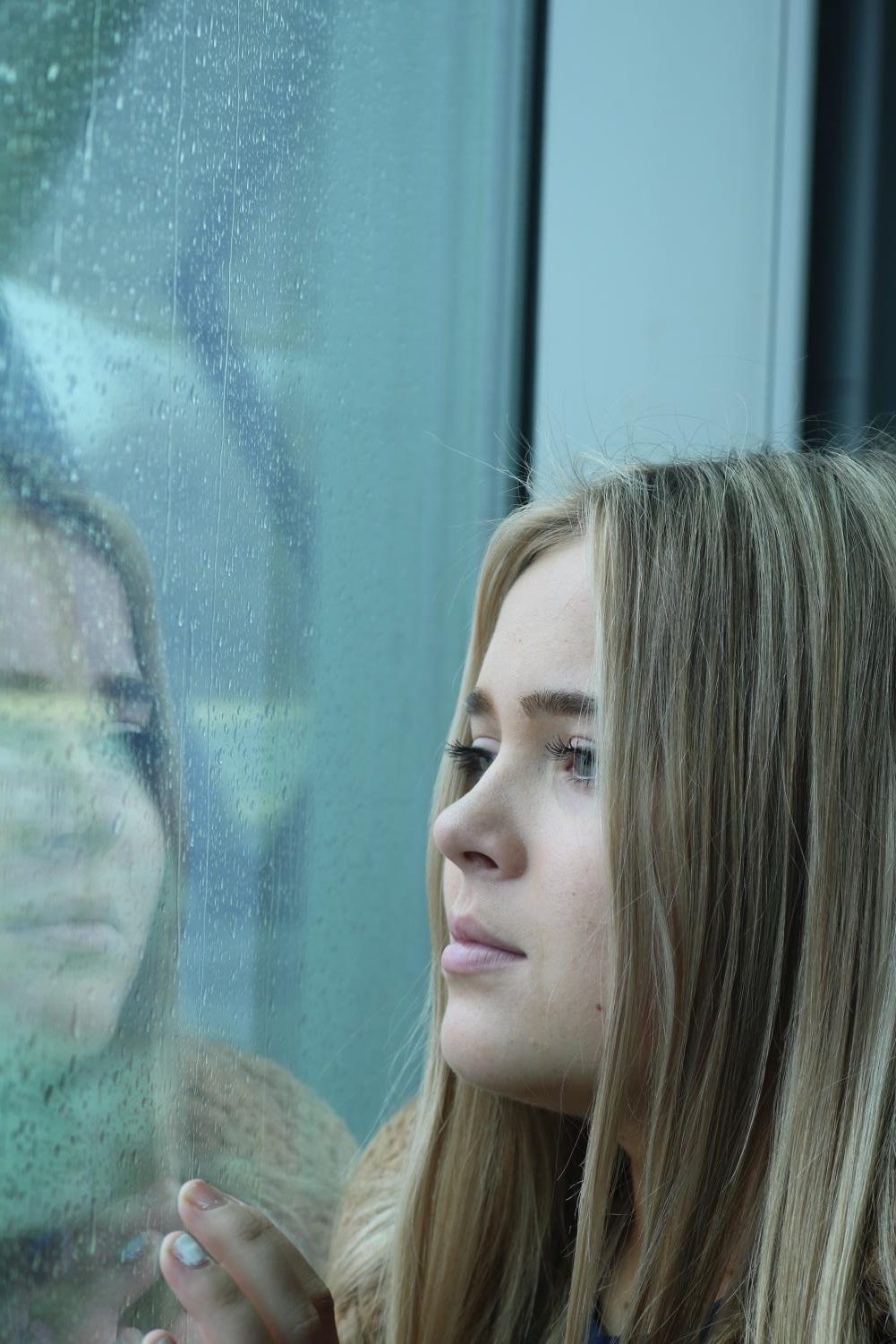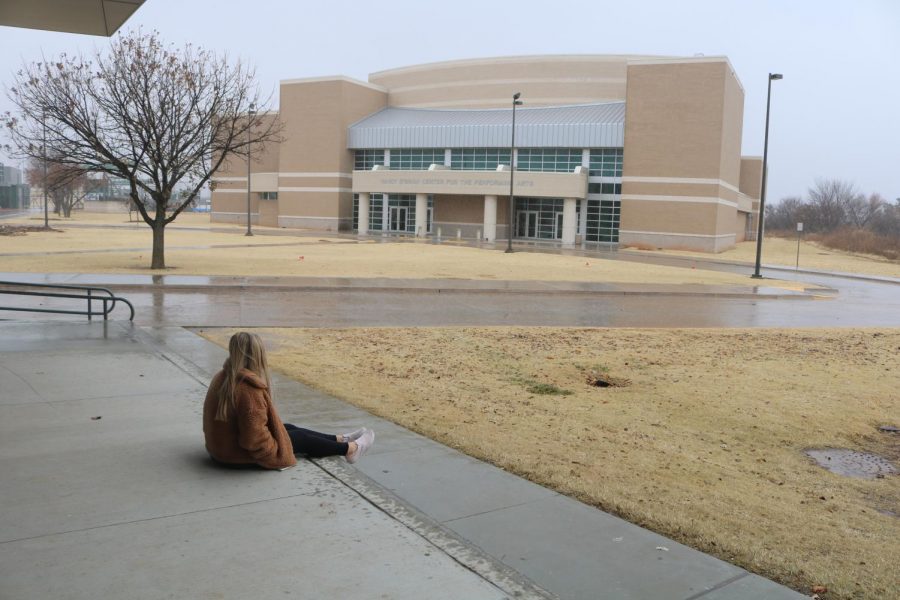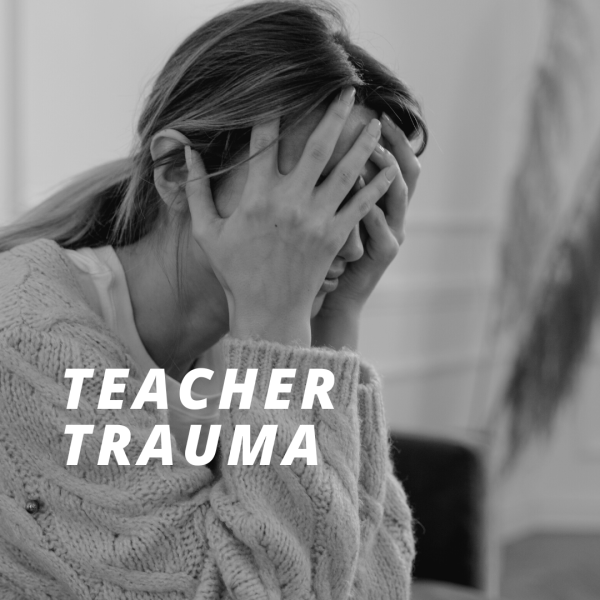Teens Face Mounting Mental Health Issues
Depression and anxiety affect one in three teens.
A LETTER FROM THE ADVISER December 3, 2019
To the Reader:
Welcome to The Howl, Student Lead, Student Minded: a laboratory for student journalism here in the North, brought to you by the Norman North Publication’s “Department” (for lack of a better term) or NNPD.
Since its founding in 2017, The Howl has dedicated itself to publishing student stories for a student audience. We realize our audience is also all stakeholders of North including teachers, administrators, and parents (the adults). We thank you for your patronage.
The publication’s staff has been kicking around a story, an idea really, where we help our readers make a connection with each other on a topic that, overlooked, can produce sometimes unsavory results. The idea is to open a dialogue between parents and their children, teachers and their students, administrators and all children/students/kids in their charges on the seriousness and prevalence of mental health issues in teenage people everywhere.
As a teacher, I see daily on a firsthand basis that it is past time to open this dialogue. Our hope is that by the end of our exposition on the very real problems our teens are facing, our readers open up to the idea that reaching out is okay, whether you’re the one who needs it, or sees the need in another. So, please, inform yourselves, take courage, and talk to each other about these things.
By S. Scott Oglesby
Growing up in today’s society, teens have to deal with a lot. Not only having to balance school, friends, and family, but also having to deal with work, extracurricular activities, and their health; including their mental health. Adults, kids, and teenagers share similar emotions, but teens tend to struggle with them differently than adults. Adults tend to take a “mental health day” from work, if necessary, maybe to reset. Teens tend to attempt to live up to expectations at their own expense. If kids don’t learn how to deal with their emotions, it can create disastrous effects.

Anxiety can lead to depression.
As people get older, they have to learn to cope with the way they are feeling. Some of these types of depression are major depression, situational depression, persistent depressive disorder, and bipolar disorder. Major/Chronic depression (MDD) is a feeling of sadness, guilt, or no energy most days for two weeks or longer. Situational depression is a normal occurrence in one’s life. As you deal with stressful days and hard days, you may be in a depressed mood. A persistent depressive disorder is diagnosed to one who has had depression for two years or longer. Having a bipolar disorder can give you mood swings that range from mania to depression, and could get to the point where it is uncontrollable.
One of the most common questions people ask is, “What is depression?” Many people can tell when they are not acting nor feeling like themselves, but what exactly is that feeling? The American Psychiatric Association defines depression by saying that “it is a common and serious medical illness that negatively affects how you feel, the way you think, and how you act; and that it is treatable too.” Depression doesn’t always travel alone, something that also follows it is anxiety.
Anxiety is a natural reaction to stress, and everyone will feel anxious many times in his life. Anxiety is a normal reaction to those unknown stressors. However, when it becomes excessive, it can cause problems in everyday life. This is especially bad for teens because they are newly exposed to anxiety and don’t know how to deal with it very well yet. There are many different types of anxiety disorders, such as generalized disorder, chronic anxiety, exaggerated worry and tension, even when there is little or nothing to provoke it. Obsessive compulsive disorder (OCD), an anxiety disorder and is characterized by recurrent, unwanted thoughts (obsessions) and/or repetitive behaviors (compulsions). Panic disorder, an anxiety disorder and is characterized by unexpected and repeated episodes of intense fear accompanied by physical symptoms that may include chest pain, heart palpitations, shortness of breath, dizziness, or abdominal distress. Post-traumatic stress disorder (PTSD), an anxiety disorder that can develop after exposure to a terrifying event or ordeal in which grave physical harm occurred or was threatened. (https://www.hhs.gov/answers/mental-health-and-substance-abuse/what-are-the-five-major-types-of-anxiety-disorders/index.html) Anxiety disorders often lead to depression or other mental illnesses which can cause a snowball effect if not treated. Some medications can also cause anxiety, as well as illegal drugs, and alcohol. (mayoclinic.org).

Depression causes teens to feel isolated, even among friends.
According to the National Institutes of Health, nearly 1 in 3 of all adolescents ages 13 to 18 will experience an anxiety disorder. Social media keeps kids constantly connected and comparing their lives with others. The high expectations of living up to someone else’s life based on their fake persona on social media. The pressures that teens feel to succeed, especially if that feeling is based on trying to display a perfect life on social media, can create a tremendous amount of stress and anxiety, that, left alone, will cause depression. The state of the world involves the high presence of school lockdowns, mass shootings, school shootings and feeling unsafe in general. It is important for parents and teachers to be aware of the signs of anxiety in their kids/students. Extreme anxiety can lead to depression and suicide as well as physical ailments like headaches, digestive issues, and chronic pain. “Anxiety is rising,” said Claire McCarthy M.D., “[especially] in teens.” That means that depression is also rising in teens. So, be aware, and be sure to talk to each other when something is feeling out of place.





Jasmine Dye • Dec 9, 2019 at 11:31 am
Mental illness can cause other students to have all problems without them knowing about it.